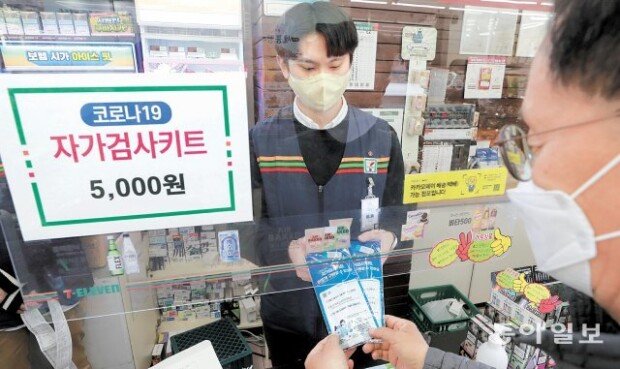Different PCR exemption periods after infection cause confusion
Different PCR exemption periods after infection cause confusion
Posted April. 08, 2022 07:54,
Updated April. 08, 2022 07:54

As the exemption periods of PCR or rapid antigen tests for recovered COVID-19 patients are different for overseas travels, going to school, or visiting hospitals, it is causing confusion.
The disease control authorities believe that up to three months after COVID-19 infection, the inactive virus can lead to positive PCR test results for recovered patients. This is also the reason why PCR tests are not required for recovered patients when released from quarantine.
However, test exemption periods are different by organizations as the disease control authorities have not unified the guidelines. According to the current guidelines, COVID-19 patients who were diagnosed 10 to 40 days before the date of leaving the country submit the confirmation letter of quarantine release instead of a negative PCR test result.
Meanwhile, the self-diagnosis application of the Ministry of Education used by students set a guideline that rapid antigen tests are not required of recovered patients for 45 days after their diagnoses. After 45 days, they are required to take at-home tests twice a week same as other students.
“I am planning to go on an overseas trip and decided to move up the travel schedule to avoid taking a test,” said Mr. Lee who recovered from the coronavirus after his diagnosis on March 14. “I watched the news that schools have a 45-day exemption period. I could have made a mistake as exemption periods are different.”
Hospitals also apply different rules. A university hospital in Seoul does not ask caretakers who recovered from COVID-19 to take a test for three months after quarantine release. “Neither a public health center nor a local government did not inform me of test exemption periods for different cases,” said Mr. Kim who was diagnosed with COVID-19 last month.
The disease control authorities categorize as reinfection cases those who have the COVID-19 virus detected 90 or more days after the initial diagnosis or those who have symptoms or had close contact with patients among people who have the COVID-19 virus detected 45 to 89 days after the initial diagnosis. However, more confusion is added as the authorities also said reinfection is unlikely if it’s between 45 to 80 days after diagnosis.
“Organizations have different rules as there are no clear guidelines,” said Dr. Kim Woo-joo, professor of Infectious Diseases at Korea University Guro Hospital. “According to recent research results, reinfection can occur even 25 days after the initial diagnosis. New unified guidelines should be set up based on the statistics of recovered patients.”
ycy@donga.com · suwoong2@donga.com



![[단독]이혜훈 “장남 다자녀로 연대 입학”…당시 그런 전형 없었다](https://dimg.donga.com/c/138/175/90/1/wps/NEWS/IMAGE/2026/01/23/133215083.1.jpg)
![하버드 의사가 실천하는 ‘뇌 노화 늦추는 6가지 습관’ [노화설계]](https://dimg.donga.com/c/138/175/90/1/wps/NEWS/IMAGE/2026/01/22/133210626.3.jpg)


